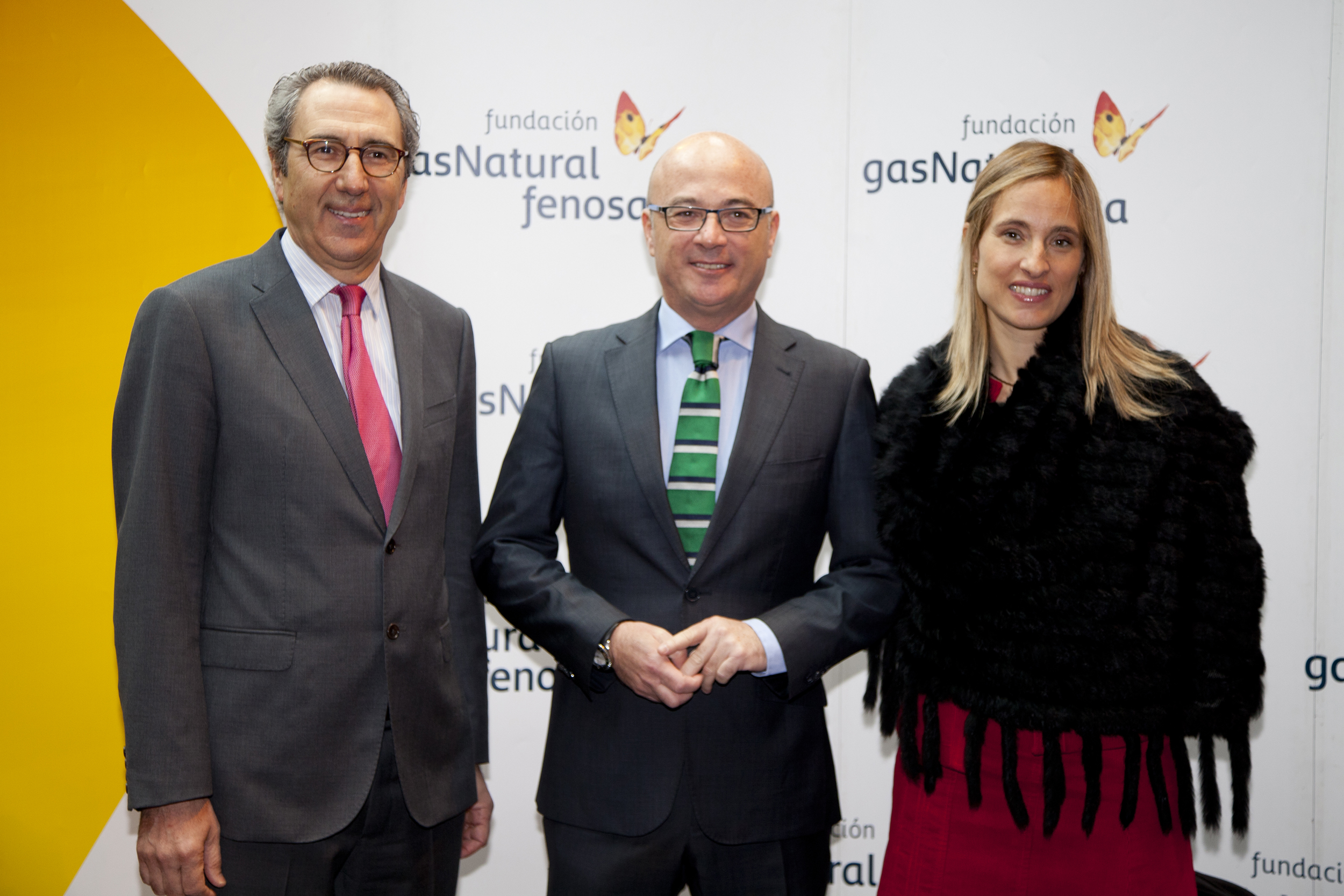The Gas Natural Fenosa Foundation analyses the potential of distributed electricity generation and photovoltaic self-consumption
In Murcia, close to 150 professionals attended the seminar entitled ‘Solar Photovoltaic Energy: self-generation and self-consumption’ to analyse the technological, economic and regulatory challenges of solar photovoltaic energy.

Earlier today in Murcia, the Councillor for Economic Development, Tourism and Employment of the Region of Murcia, Juan Hernández Albarracín and the Managing Director of the Gas Natural Fenosa Foundation, Martí Solà officially opened the seminar entitled ‘Solar Photovoltaic Energy: self-generation and self-consumption’. At the event, which was attended by 150 professionals, discussions took place on the technological development of solar photovoltaic energy in the Region of Murcia, as well as the opportunities for hybridisation and collaboration between solar photovoltaic technologies and those based on natural gas. Furthermore, regulation proposals were made for balanced and positive development of self-generation and self-consumption in Spain.
The seminar was attended by the Director-General for Energy and Industrial and Mining Activity of the Council for Economic Development, Tourism and Employment of the Region of Murcia, Esther Marín, who presented the 2016-2020 Region of Murcia Energy Plan, highlighting the role played by solar photovoltaic energy in this region of Spain. Esther Marín explained the actions being taken to foster energy self-consumption in the region and increase the percentage of self-supply from renewable energy sources.
The Electricity Regulation Director of GAS NATURAL FENOSA, Javier Latorre, presented the main regulatory aspects of Royal Decree 900/2015 on self-consumption approved in October 2015 and explained that the power company has begun offering free advice to companies on their options in terms of benefiting from photovoltaic self-consumption. Furthermore, Javier Latorre proposed various regulatory improvements for better development of energy self-consumption in Spain, stressing the need for balance between the self-consumption installations connected to the electricity system and the financing of system costs and services in order to guarantee the technical and economic sustainability of this system as a whole.
The Managing Director of the Catalonia Institute for Energy Research (IREC), Juan Ramón Morante assessed the current situation in terms of small-scale photovoltaic technology, highlighting the significant reduction in its cost over recent years. He also analysed other key technological aspects related to the penetration of this form of energy production, such as electricity storage.
From an economic point of view, Juan Ramón Morante explained how to calculate the pre-tax cost of photovoltaic generation and the related electricity storage associated with solar self-consumption. To this end, he recommended changing the electricity price structure in Spain, including the costs related to electricity generation, transport and distribution, and other costs that are not directly tied to supply (subsidies and taxes).
The Consumer Motivation Manager of GAS NATURAL FENOSA, José Manuel Domínguez, explained the characteristics and potential applications of the technologies associated with natural gas when hybridised with renewable energy of solar origin through a number of practical cases involving installations of this nature. He also discussed the main advantages of this type of hybridisation, underlining the role to be played by natural gas as a continuous supply, technically efficient and economically competitive energy solution.
In turn, the Director of the Solar Photovoltaic Energy Department at the National Centre for Renewable Energies (CENER), Ana Rosa Lagunas, highlighted the advantages offered by the self-consumption model in locations close to the point of use. Furthermore, Ana Rosa Lagunas examined its evolution and development in international environments and countries that have been operating a self-consumption model for some time, such as the United States, Germany and Japan, describing the product requirements and alternatives for said application.
Gas Natural Fenosa Foundation
The Gas Natural Fenosa Foundation, founded in 1992, works to promote information and training and raise social awareness of improvements in energy efficiency and technological innovation in the field of energy while respecting and protecting the environment. It promotes cultural activities through its Gas Museum that are aimed at preserving and publicising the sector's historical and cultural heritage. It also has a programme to support exports for small and medium-sized enterprises. Its international activities are carried out in Algeria, Argentina, Brazil, Colombia, Costa Rica, Mexico, Morocco, Italy, Moldova and South Africa.
Murcia, 18 Murcia 2016.
Share